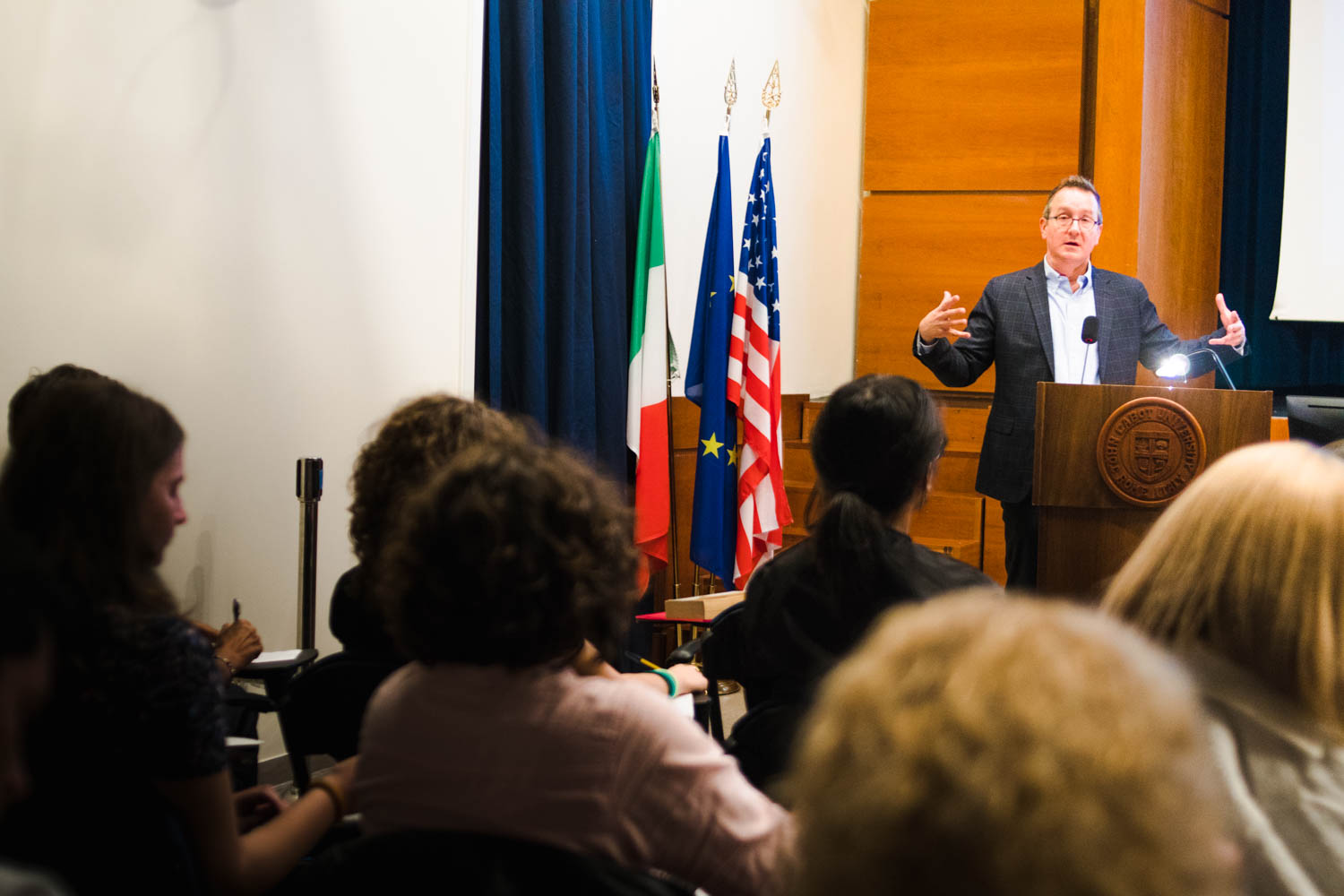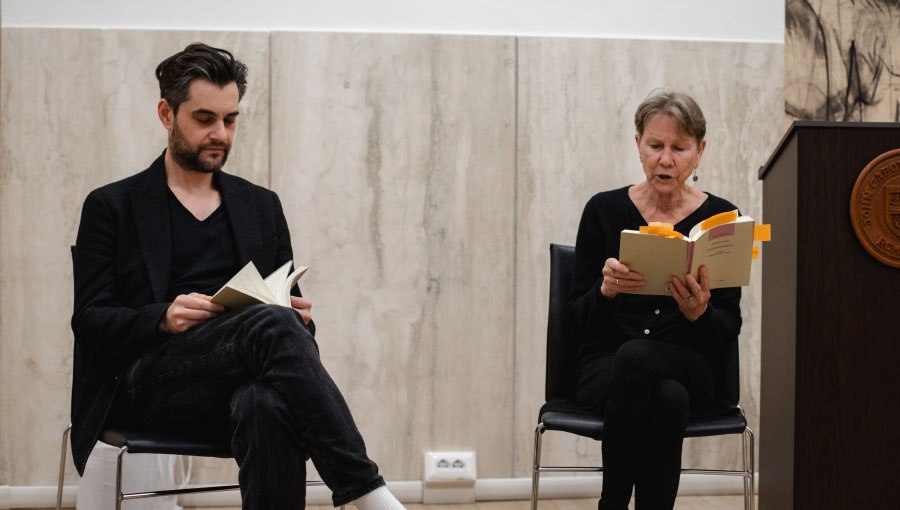Italy Reads 2018 Inaugurated by Keynote Speaker Dr. Mark Bosco
John Cabot University’s Italy Reads 2018 Program welcomed Dr. Mark Bosco, S. J., who delivered a keynote address on Flannery O’Connor in the Aula Magna Regina on October 10, 2018. Italy Reads is a community-based English language reading and cultural exchange program that started in 2009. It collaborates with 200 teachers from over 60 high schools across Italy. Each year, one classic work of American literature is selected to be read together.
A professor in the Department of English at Georgetown University in Washington, D.C., Father Bosco’s work focuses on Catholic writer Flannery O’Connor. He is currently directing a biographical film called Flannery O’Connor: Mystery and Manners.

Dr. Mark Bosco
Dr. Bosco started by talking about Flannery O’Connor’s life. She was an Irish-American Catholic born in Savannah, Georgia in 1925. Her first name was Mary, but she dropped it because she thought it sounded like the name of a poor Catholic woman. She died on August 3, 1964 at the age of 39 from Lupus, an auto-immune disease that also affected her father. When she died, she had drafts of her work under her hospital pillow.
Flannery O’Connor’s short life limited her body of work, which includes two novels and numerous short stories. Professor Bosco said that the best way to understand O’Connor’s work is to read the letters she had written to her friends, where she proves to be her own best critic. In these letters, the author explains her novels and what her intentions behind them were. She is the only female American writer to have won five O. Henry Awards. During her time, literary culture was dominated by white Anglo-Saxon protestant men.
O’Connor initially thought that she would become a cartoonist. She attended the Georgia State College for Women and then the University of Iowa to study Journalism. Male writers were not very fond of her because she was more popular than them. Towards the end of her life her illness forced her to go back to Georgia, to the family farm called Andalusia.
In her stories, Flannery O’Connor ridicules Southern white manners, which she thought were a facade that kept people from reality. She explored the conflict between the Old South, characterized by a racial hierarchy, and the New South, which emphasized integration and multiculturalism. Other recurrent themes in her work are freedom, free will, the grotesque (which she called distorted reality) and the mother-child relationship.





